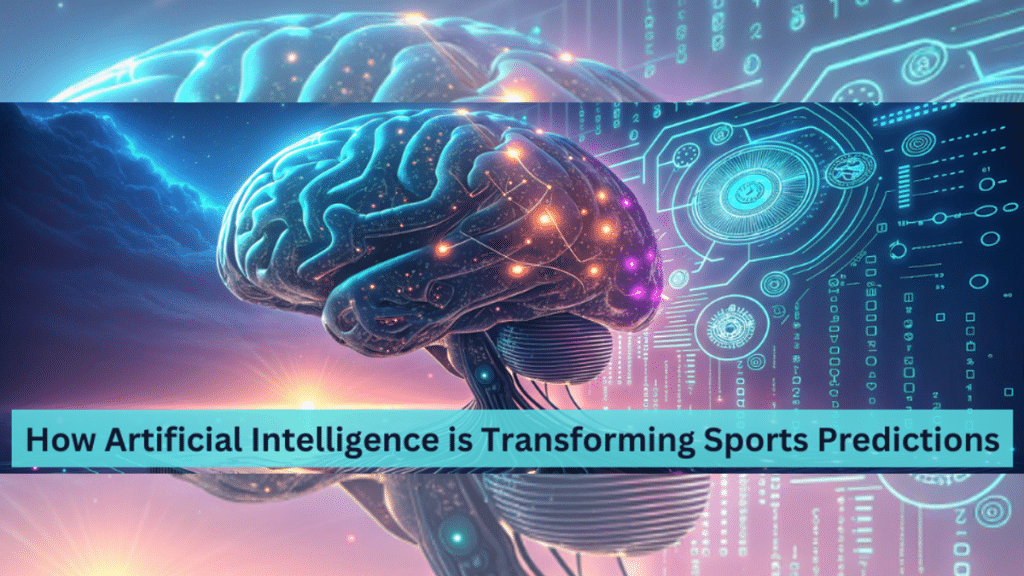Artificial Intelligence (AI) is increasingly becoming a part of our daily lives, and sports are no exception. Today, AI significantly impacts the prediction of sports events by offering new approaches to data analysis and improving prediction accuracy. This article explores how AI is transforming the concept of sports predictions, the technologies behind this process, and what it means for sports enthusiasts and bettors.
A New Era of Analysis
Sports predictions have traditionally relied on statistics, intuition, and the expertise of analysts. However, with the advent of AI, this process has become more structured and scientific. Algorithms can process vast amounts of data that were previously overlooked. These include not only standard metrics like goals scored, ball possession percentages, or free throws but also less obvious factors such as weather conditions, players’ emotional states, or even the influence of fans at home stadiums.
Note. AI identifies relationships within this data that might be invisible to humans. For instance, it can analyze how a specific player performs against a particular opponent or how a team responds to a coaching change. This makes predictions more accurate and well-founded.
How AI Works
To understand how AI transforms sports predictions, it’s essential to look at the technologies used for data analysis:
- Machine Learning. Algorithms learn from historical data and improve over time.
- Neural Networks. These help uncover complex relationships between various parameters.
- Text Analysis. Systems analyze news, interviews, and expert commentary to supplement numerical data.
- Real-Time Data Processing. This allows adjustments during matches—for example, accounting for player injuries or tactical changes.
These technologies are not limited to sports. For instance, in the online entertainment industry, similar methods are applied. The slot demo Pirates Bonanza uses complex mathematical algorithms to create an engaging gaming experience. This slot offers players not only a high return percentage (RTP) but also unique bonus features. Just as AI enhances prediction accuracy in sports, it improves user experiences in games.
Advantages of AI in Sports Predictions
The use of AI in sports analytics opens up numerous possibilities:
- Accuracy. Algorithms consider countless factors, reducing the likelihood of errors.
- Speed. Data is processed instantly—critical for real-time betting.
- Objectivity. The human factor—emotions or analyst bias—is eliminated.
- Flexibility. Systems adapt to new data or changing conditions.
Interesting fact. During major tournaments like the FIFA World Cup, AI has already shown impressive results. Algorithms have predicted match outcomes with up to 75% accuracy—significantly higher than traditional analysts’ average performance.
Challenges and Limitations
Despite its clear advantages, using AI in sports predictions comes with several challenges:
- Data Quality. If the initial information is incomplete or inaccurate, analysis results may be flawed.
- Ethics. Using athletes’ personal information raises concerns about privacy.
- Misuse. Some individuals exploit AI for unfair advantages.
These issues require careful algorithm development and adherence to ethical standards.
How Does AI Compare to Traditional Methods?
| Traditional Methods | AI-Based Predictions |
| Rely on expert experience | Use mathematical models |
| Prone to emotional influence | Eliminate subjectivity |
| Limited by data volume | Analyze millions of parameters |
Note. Many professional analysts combine both approaches to achieve maximum accuracy.
AI has already proven its value in sports predictions by enabling more precise and justified forecasts while opening new opportunities for fans and players alike. However, it is crucial to address existing limitations and challenges—from data quality to ethical considerations.
In the future, we will undoubtedly see more examples of AI applications in sports. These technologies not only make analytics more accessible and effective but also help us better understand the nature of competition itself.
